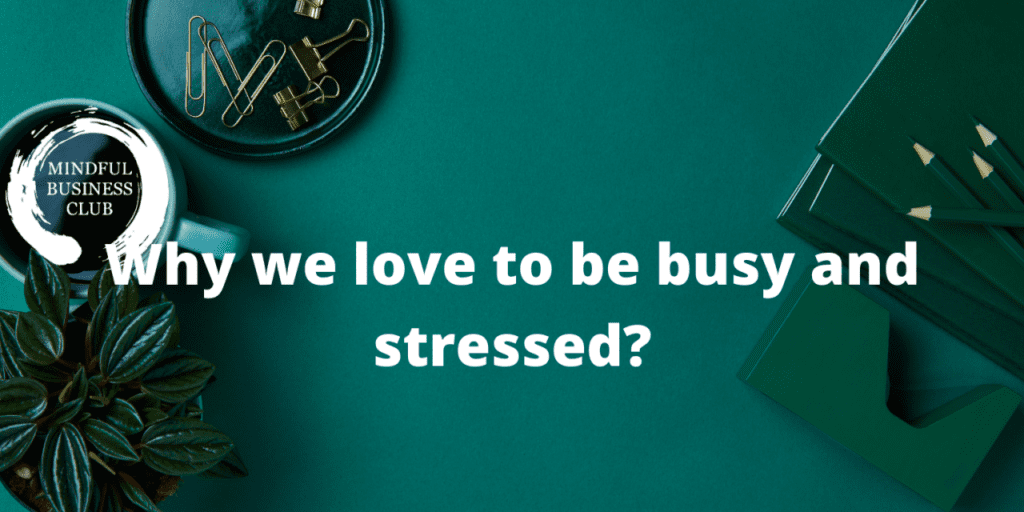When we started with Mindful Business Club with the vision #Peoplefirst – mindful in your business, we were sure that there are many people out there, who have the same dream. Creating a cooperative and people oriented-life and organization.
We started to read a lot of great content, how to build up communities, how to interact with them, what a great article looks like and all the fantastic staff, driven by our vision. Enthusiastic to change the world and contribute to a great community.
We planed our days, worked on our content and made fantastic plans, what we could do. BUT at one point it became soo complex, we made a science essay out of everything.
Did you ever looked up how to to create a good podcast – you get 694.000.000 results in 0,80 seconds. So you get my point! BUT WHY?
Why do we love to be busy and stressed?
The human brain loves simulation – what I call the “monkey brain”. It likes being busy, entertained and challenged. The brain keeps busy by understanding, solving, deciding, debating, arguing, influencing, growing. It is always working. You finish something, has consensus but still, your brain continues to work on that.
This means that even if something is simple, our brain concludes that it can’t be that simple and proceeds to make it much more complicated – more complex more stimulation.
Imagine you are super busy, very successful and looking for ways to reduce stress and have a healthier life. What are your immediate thoughts?
I need to….:
– exercise
– eat healthy food
– meditate
– take time for your myself
– work on my perfection
– get enough sleep
– have a positive attitude
“Life is really simple, but we insist on making it complicated.”
Confucius
How big are the changes that you will work on your stress reduction? How big are the chances that you pursue that path to prevent the burnout?
Save to assume, that you will not succeed in your transformation or even worse you will not even start.
What did we change?
Get a new perspective!
We agreed when things tend to be very complex and it can’t be easily explained to an outsourcer and each other, we know we are in the cognitive bias. Then we go back and discuss a more simple solution. We talk to our friends and colleagues in the same field, to see if we overcomplicate things.
We defined success for us!
We defined success for us, we don’t believe “working long hours” is equal to “work hard”, quite the opposite if you need long hours, it is a tendency that is is too complex. Beware of the social perception of success and what it means. The complexity bias will be weaker once you shift your energy to achieving your goal, rather than reacting to external pressures.
We do marathons and not sprints!
We see our work not as a constant sprint, but a long nice marathon. We are patient and don’t look at time as our enemy but rather our friend. We just started and we have a mission, that is all it needs for us, to get going every day.
